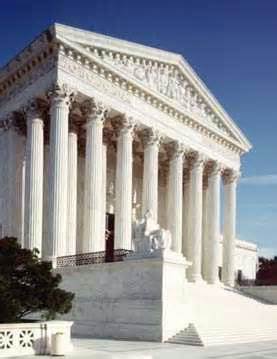June 17: Creating the “Sherbert Test” (1963): Burdens on Religious Practice
 It was on this date, June 17, 1963, that the U.S. Supreme Court decided 7-2 in Sherbert v. Verner (374 U.S. 398 (1963)), creating the “Sherbert Test,” and saying that adherents of minority faiths cannot be disadvantaged by government without a compelling interest in limiting free exercise of religion. When a textile mill worker was asked to work on Saturday, she cited her religious conviction as a Seventh-day Adventist when she declined. For this she was fired and could not find other work. She applied for unemployment compensation with South Carolina and was denied because her reason for refusing to accept “suitable” work was not compelling. She sued and lost; the decision was affirmed by the South Carolina Supreme Court.
It was on this date, June 17, 1963, that the U.S. Supreme Court decided 7-2 in Sherbert v. Verner (374 U.S. 398 (1963)), creating the “Sherbert Test,” and saying that adherents of minority faiths cannot be disadvantaged by government without a compelling interest in limiting free exercise of religion. When a textile mill worker was asked to work on Saturday, she cited her religious conviction as a Seventh-day Adventist when she declined. For this she was fired and could not find other work. She applied for unemployment compensation with South Carolina and was denied because her reason for refusing to accept “suitable” work was not compelling. She sued and lost; the decision was affirmed by the South Carolina Supreme Court.
But the U.S. Supreme Court, in a 7-2 decision, reversed South Carolina’s decision as an unconstitutional burden on the free exercise of Sherbert’s religion. Chief Justice Brennan wrote for the majority, “to condition the availability of benefits upon this appellant's willingness to violate a cardinal principle of her religious faith effectively penalizes the free exercise of her constitutional liberties.” In order to limit free exercise, the court said, the government must determine that (1) the person has a claim involving a sincere religious belief, and (2) the government action is a substantial burden on the person’s ability to act on that belief. Then, if these two elements are established, then the government must prove (3) that it is acting in furtherance of a "compelling state interest," and (4) that it has pursued that interest in the manner least restrictive, or least burdensome, to religion.
The “Sherbert Test” controlled the court’s adjudication of religious liberty claims from 1963-1990, when it was replaced by the Lemon Test. Sherbert was revised and updated by Congress through incorporation into the Religious Freedom Restoration Act of 1993 – which, unlike the even-handedness of Sherbert, was an attempt to inject more religion into American life. However, Sherbert left unresolved the basic question of what makes religion so valuable to society that its practitioners and practices get special rights.

